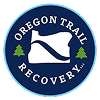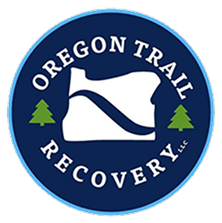Supporting Spouse Recovery: A Complete Guide for Partners in Oregon

Key Takeaways
Here’s a brief overview of the following article:
- Understanding Addiction: Addiction is a medical condition that alters brain function. It is not a moral failing – it requires compassion and professional help to support spouse recovery effectively. Having an addict or alcoholic in your family does not mean you failed as a parent, spouse, or other family member.
- Recognizing Warning Signs: Look for physical changes (e.g., weight loss, poor hygiene), behavioral shifts (e.g., secrecy, mood swings), and social/financial issues as indicators your spouse may need help.
- Breaking Stigma: Combat stigma by using person-first language, educating yourself about addiction, and approaching your spouse or loved one with empathy to encourage treatment and recovery.
- Balancing Support and Self-Care: Educate yourself, communicate non-judgmentally, and prioritize your own health to sustain your ability to support your spouse’s recovery. Attending support groups like Alanon will often help you in this process.
- Professional Help: Oregon Trail Recovery offers evidence-based therapies, family counseling, and a compassionate, experienced team to guide both spouses toward lasting recovery.
Connect with Oregon Trail Recovery today to explore tailored programs and start supporting spouse or family member recovery — without compromising your personal well-being.
The Reality of Supporting a Loved One Through Addiction
If you're in this situation, you are far from alone:
Supporting spouse recovery is a reality for millions of families across the United States. In fact, over 46% of Americans report having a family member or close friend who has dealt with drug addiction.1
The statistics surrounding addiction and relationships paint a sobering picture, especially in our region:
- Regional Impact: Oregon ranks 9th in the U.S. for suicide rates and faces some of the country's highest rates of methamphetamine and opioid use.2
- Nearby Effects: Neighboring Wyoming has one of the highest suicide rates per capita and limited access to mental health services, making regional support crucial.3
- Relationship Stress: Substance use plays a role in up to 34% of divorces, tearing apart hundreds of thousands of families each year.4
- Hope in Treatment: Couples who engage in the recovery process together often have higher chances of achieving long-term sobriety compared to individuals who undergo treatment alone.5
Understanding that addiction is a medical condition, not a moral failing, is the first step to supporting spouse recovery.
How Addiction Affects the Brain
Substance use disorders (SUD) create profound changes in the brain that make it incredibly difficult for someone to stop without professional help.
This knowledge allows you to approach your loved one with compassion instead of judgment, which is foundational to successfully supporting spouse recovery.
People with strong support systems are far more likely to complete treatment and maintain sobriety, making your role both challenging and incredibly important.
So, where do you begin? The first step is learning to recognize the signs that your partner needs help.

What Are The Warning Signs Your Loved One Is Struggling?
Addiction often develops gradually, making the early warning signs easy to miss. However, as substance use progresses, clear indicators often emerge.
Recognizing them is the first step in supporting spouse recovery. Here are some common symptoms that may point toward your spouse struggling with substances:
- Sudden weight loss or gain.
- Bloodshot eyes, dilated or constricted pupils.
- Changes in sleep patterns (insomnia or oversleeping).
- Poor coordination, shakiness, or trembling.
- Increased secrecy about their activities, whereabouts, or protective of their phone.
- A decline in work or school performance.
- Sudden and intense mood swings, irritability, or defensive reactions.
- Loss of interest in hobbies and activities they once enjoyed.
- Symptoms of depression, anxiety, or paranoia.
- Withdrawing from family and friends.
- Unexplained financial problems, such as missing money or a sudden need for cash.
- Neglecting financial responsibilities like paying bills.
If any of these symptoms resonate with your experience, it is a clear signal that it's time to address the issue – and our team at Oregon Trail Recovery can help.
Breaking the Stigma Around Addiction
One of the greatest obstacles in supporting spouse recovery is the pervasive stigma surrounding addiction.
Many still view it as a character flaw or moral failing rather than the complex medical condition it is. This harmful misconception creates shame and fear, preventing countless individuals and families from seeking the help they desperately need.
How Does Stigma Affect Healing?
The stigma against people with substance use disorders creates very real barriers to treatment and can make the condition worse.
Here’s how:
- Fear of Judgment: People are less likely to ask for help when they fear judgment from society, employers, or even family.
- Barriers to Care: The fear of losing a job, custody of children, or social standing keeps many people from accessing life-saving treatment.
- Internalized Shame: Stigma often leads to internalized shame, making individuals feel unworthy of recovery.
For supporting spouse recovery, it's crucial to understand addiction as a brain disease. Substance use disorders hijack the brain's reward, decision-making, and self-control circuits, making it nearly impossible to stop without professional intervention.
How to Break the Stigma
There are several ways that you can help with supporting spouse recovery and breaking the stigma, including:
- Use Person-First Language: This simple shift can make a world of difference. Instead of using labels like "addict," say "a person with a substance use disorder" or "my spouse who is in recovery." This language respects their humanity and separates them from their disease.
- Educate Yourself and Others: Learn everything you can about addiction as a medical condition. Share accurate information with friends and family to challenge harmful stereotypes.
- Lead with Compassion: Remember that addiction can affect anyone, regardless of age, race, income, or background. Your spouse did not choose this path. Approaching them with empathy instead of anger is essential for supporting spouse recovery.
With this foundation of understanding, you can begin to navigate the delicate balance of helping your partner while also caring for yourself.
Supporting Spouse Recovery While Caring for Yourself
Supporting spouse recovery is a marathon, not a sprint. To be an effective ally for your partner, you must first protect your own well-being. This balance is perhaps the most challenging, yet most critical, aspect of the journey.
Here’s how you can provide support without losing yourself in the process:
Educate Yourself
The more you understand about addiction and the recovery process, the better equipped you'll be to respond with compassion instead of frustration. Some ways to educate yourself include reading books, listening to podcasts, and attending support groups like Al-Anon or Nar-Anon.
Practice Open, Non-Judgmental Communication
Let your spouse know you are there for them when they are ready to talk. Create a safe space for dialogue by listening without judgment and avoiding unsolicited advice.
You can also start to use "I" statements to express your feelings without placing blame (e.g., "I feel scared when..." instead of "You always...").
Avoid Enabling Behaviors
It’s natural to want to protect your loved one, but enabling can prolong the addiction. Avoid making excuses for their behavior, giving them money that could be used for substances, or lying to cover up the consequences of their actions.
Prioritize Your Own Health
Your well-being is not optional – it's essential. You can’t pour from an empty cup.
Make time for activities that recharge you, and ensure you are eating well, exercising, and getting enough sleep. It’s also a good idea to look into therapy for yourself to process the trauma and stress you've experienced. Look for others in your situation like the 12-step program, Alanon.
Practice Patience and Self-Compassion
Recovery is not a straight line; setbacks and relapses are often part of the process, and this is not a reflection of your support or their desire to get better. Be patient with your spouse and, just as importantly, with yourself.
Taking care of yourself isn’t selfish; it’s a necessary component of supporting spouse recovery. This can also help ensure that both of you stay healthier in the long-term.
Supporting Spouse Recovery at Oregon Trail Recovery
When supporting spouse recovery feels like too much to handle alone, professional help can provide the guidance and structure your family needs. At Oregon Trail Recovery, we understand the unique challenges that addiction brings into a partnership.
Our mission is to be our clients' last treatment experience, and our approach is built on a philosophy of "love with an edge.” This means we provide compassionate, empathetic care while holding firm boundaries that foster genuine change.
We know what it takes to heal. Many of us have walked this path ourselves. Founder Ben Randolph and much of our team are in recovery, bringing a level of authentic understanding that is hard to find elsewhere.
How Our Team at Oregon Trail Recovery Can Help
Here’s how Oregon Trail Recovery provides professional support:
- Evidence-Based Therapies: We specialize in proven clinical modalities that address both the addiction and its underlying causes. Our programs utilize cognitive behavioral therapy (CBT) and the Seeking Safety curriculum for co-occurring PTSD and substance use.
- Multiple Levels of Care: Recovery is a process, not a single event. We offer a full outpatient continuum of care, including partial hospitalization (PHP), intensive outpatient (IOP), and traditional outpatient programs, allowing clients to transition smoothly back into daily life.
- A Mission-First Philosophy: We put our clients' well-being above all else. We are committed to keeping a client for as long as they need support, not just until their insurance runs out. Our goal is true, sustainable recovery.
Our commitment also extends beyond the individual to the entire family system, which is often in need of its own healing.
Supporting the Family Unit
Supporting spouse recovery is a journey for the entire family. At Oregon Trail Recovery, we take a family-centered approach, recognizing that loved ones are an integral part of the healing process.
Our family support system is designed to heal relationships and rebuild trust by providing:
- Family and Couples Counseling: We offer professionally guided therapy sessions to help improve communication, resolve conflicts, and rebuild the trust that addiction has eroded.
- Education for Loved Ones: We provide partners with education about the disease of addiction, helping them move from a place of anger and frustration to one of compassion and understanding.
- Building a Foundation for the Future: While our aftercare and alumni services are still developing, we are deeply committed to providing resources for ongoing support. We know that recovery is a lifelong commitment for both our clients and their families.
Reach out to our team today to learn more about supporting spouse recovery.

Supporting Spouse Recovery: Taking the Next Step
If you are struggling with supporting spouse recovery, please know that you do not have to carry this burden alone. Oregon Trail Recovery is here to help your family find the path to healing and hope.
Our compassionate, experienced team understands what you’re going through and has the tools to guide you forward.
You and Your Loved One Deserve a Healthier Tomorrow
Don't wait for the situation to get worse. The sooner you start supporting spouse recovery and encouraging treatment, the greater the chances of a successful and lasting recovery for your spouse and your entire family.
At Oregon Trail Recovery, we are committed to being your last treatment experience and your first step toward a new life. No matter how long you or your spouse has been struggling, we’ll be there to meet you right where you need us.
Your family's future is worth fighting for. Let us help you take that first step today.
Resources
- https://www.pewresearch.org/short-reads/2017/10/26/nearly-half-of-americans-have-a-family-member-or-close-friend-whos-been-addicted-to-drugs/
- https://www.save.org/wp-content/uploads/2025/02/2023_Suicide_Data_States_TOY.pdf
- https://www.save.org/wp-content/uploads/2025/02/2023_Suicide_Data_States_TOY.pdf
- https://pmc.ncbi.nlm.nih.gov/articles/PMC4012696/#:~:text=Table%201%20presents%20the%20%E2%80%9Cmajor,these%20specific%20reasons%20for%20divorce.
- https://pmc.ncbi.nlm.nih.gov/articles/PMC2851021/







